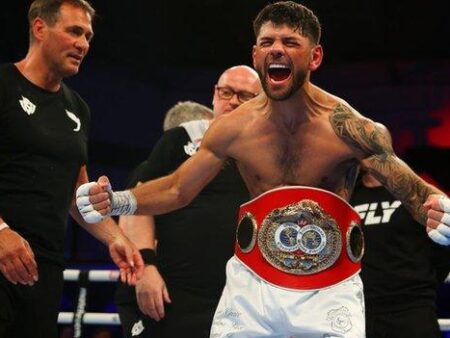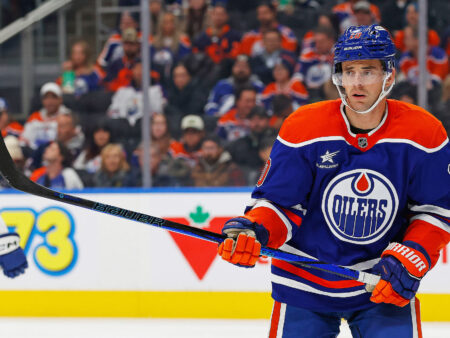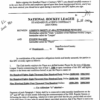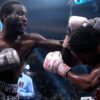The mixed martial arts landscape has long celebrated the rise and fall of champions, but few narratives are as compelling as a purposeful return. A.J. McKee, a name synonymous with featherweight supremacy, is scripting his next chapter. After a calculated foray into the lightweight division, `The Mercenary` is poised to return to his original dominion, the 145-pound class, with a clear objective: to unequivocally reassert his claim as the world`s premier featherweight.
The Lightweight Experiment and the Unseen Obstacle
McKee`s initial reign in the featherweight division was nothing short of spectacular. An undefeated run culminated in a dominant championship victory, establishing him as a formidable force. Following a narrow decision loss in a highly anticipated rematch, McKee sought new challenges, ascending to the lightweight division. His tenure at 155 pounds initially proved successful, marked by a four-fight winning streak that positioned him for a pivotal lightweight title eliminator against rising star Paul Hughes.
However, that pivotal bout, which ended in a split-decision loss for McKee, carried an undisclosed weight. Unknown to the public, and indeed, against medical advice, McKee entered the cage having undergone significant shoulder surgery shortly before the fight. The extent of the injury was not trivial, involving a tear in his pectoral muscle, labrum, and bicep, alongside a shaving down of his AC joint and rotator cuff. This was a comprehensive repair.
“I had shoulder surgery right before the last fight,” McKee revealed. “Doctors told me not to fight. But you’ve got to go do what you’ve got to do. I fell a little bit short.”
While some might interpret such a revelation as a post-hoc justification for a loss, McKee is resolute in accepting responsibility. He emphasizes that the decision to compete was entirely his own. The context, however, provides a critical lens through which to view his performance. Competing at a professional level, particularly in a combat sport, while navigating the immediate aftermath of major surgery and unfinished physical therapy, speaks volumes about a fighter`s dedication, if not always their tactical prudence.
McKee candidly admitted to feeling “drained” and “out of it” even after the first round, a stark contrast to his usual boundless energy. Yet, he pushed through, delivering a performance that, despite the physical limitations, remained competitive. This speaks to an inherent mental fortitude, but also highlights the very real toll that severe injuries and their repairs exact on an athlete`s physical and neurological systems.
A Strategic Recalculation: The Return to the Throne
The decision to return to featherweight wasn`t solely a reaction to the loss against Hughes, nor was it an admission of inability to compete at lightweight. It was, as McKee describes it, a feeling he always had—an eventual gravitation back to his natural habitat. The missed opportunity to fight for the lightweight title accelerated this shift.
Now, fully recovered and feeling “healthy, strong and better than ever,” McKee`s focus is singular. He aims to make a definitive statement, to remind the world precisely who he is at 145 pounds. His motivations are clear:
- Reclaiming Dominance: McKee believes he is “still the baddest man on the planet in this division” and aims to prove it definitively.
- Chasing Gold: “I love titles,” he states, indicating an insatiable hunger for championship glory.
- Fresh Competition: The recent PFL-Bellator merger has injected a wealth of new talent into the featherweight division. This expanded pool of opponents addresses a previous frustration McKee experienced, where he had seemingly exhausted the top contenders in his weight class. This influx of new challenges provides ample motivation.
- Vengeance and Hunger: Suffering only his second professional loss, McKee is driven by an intense desire to rebound. “Every time I lose, I come back with a vengeance. I’m hungrier than ever.”
McKee views his lightweight venture as a testament to his versatility and skill, proving his ability to contend in any division. However, it is at featherweight where he feels truly untouchable, where his skill set and mindset converge to create an almost insurmountable challenge for any opponent.
The Path Forward: Unwavering Resolve
A.J. McKee`s return to the featherweight division is more than just a weight cut; it`s a declaration of intent. It`s the story of a supremely talented athlete, tested by adversity and physical limitation, now returning to his strongest form with a renewed, almost ferocious, sense of purpose.
The featherweight landscape has undoubtedly evolved in his absence, but McKee`s message is unequivocal. He doesn`t care who stands opposite him; his objective remains the same: “If you’re in front of me, I’m coming to take your head off.” This is the sound of a champion returning to reclaim his throne, not merely as a participant, but as a dominant force ready to redefine the division once more.










